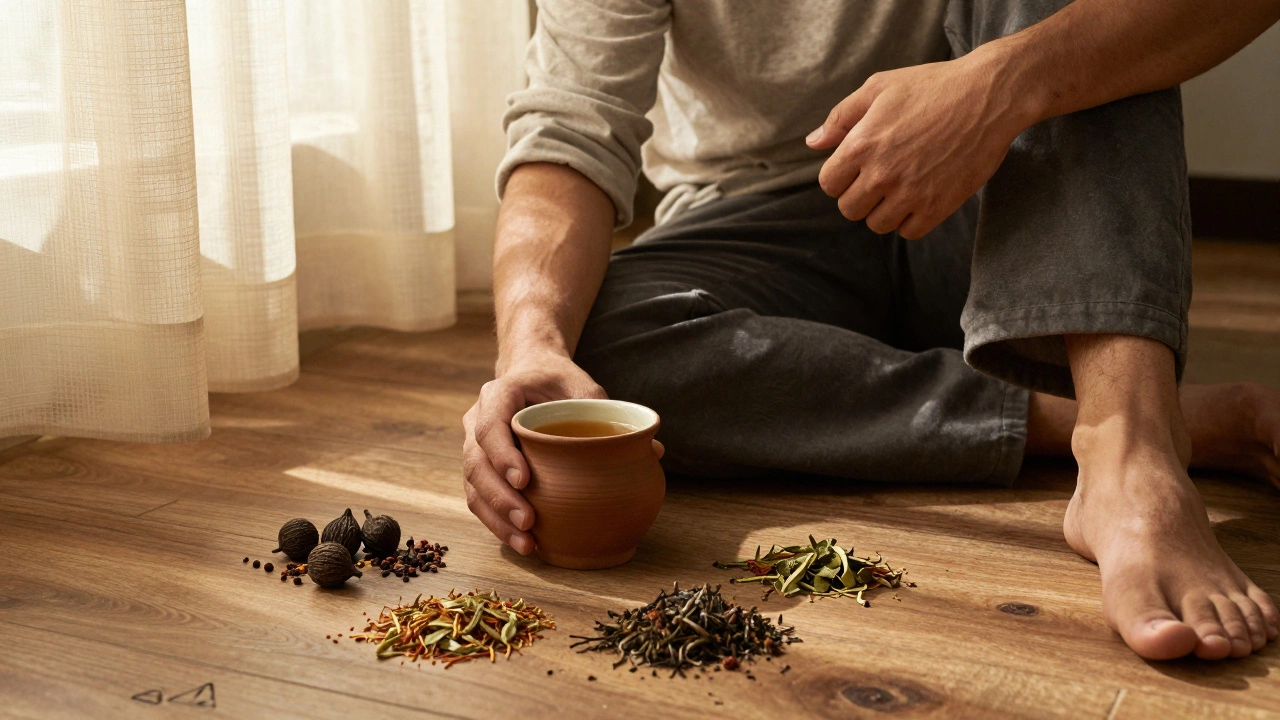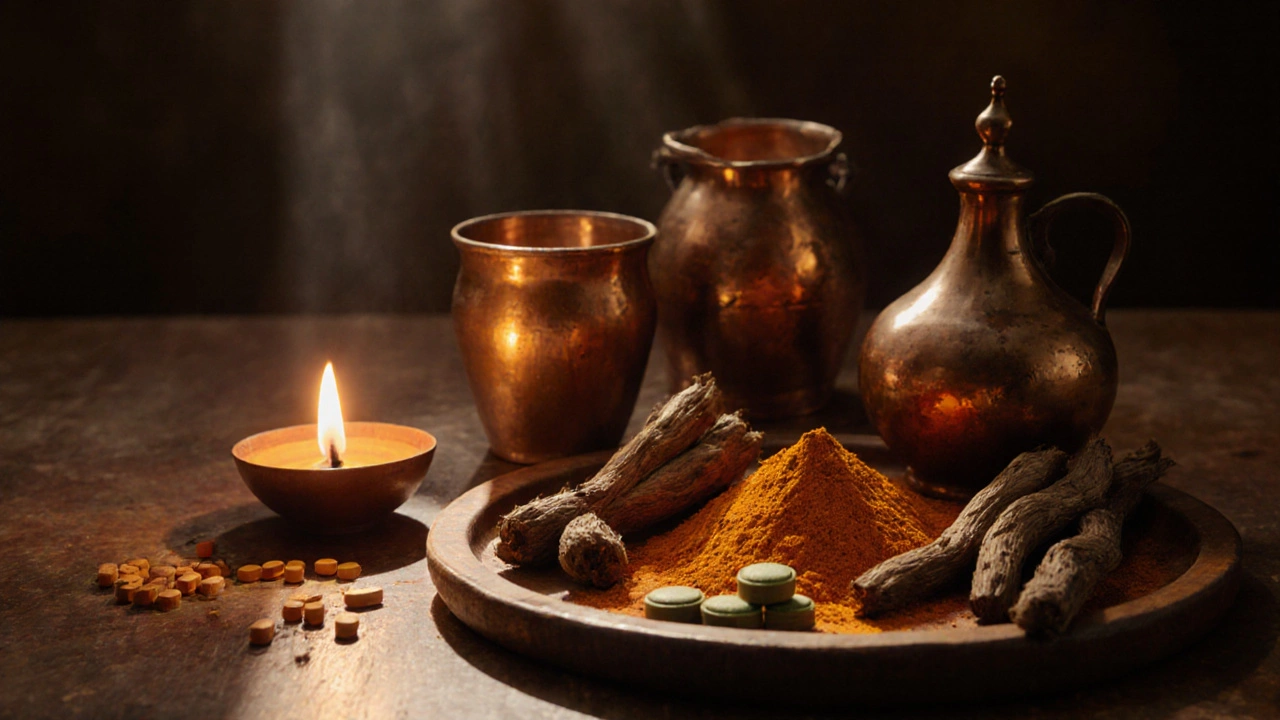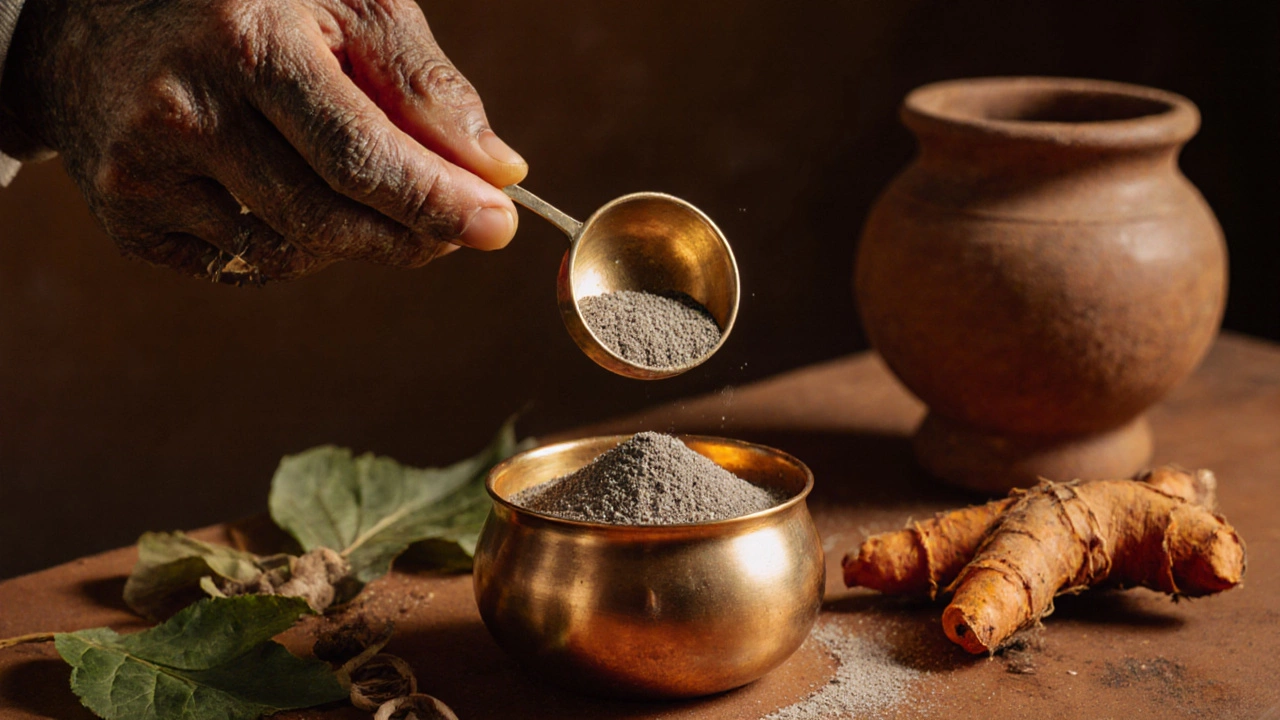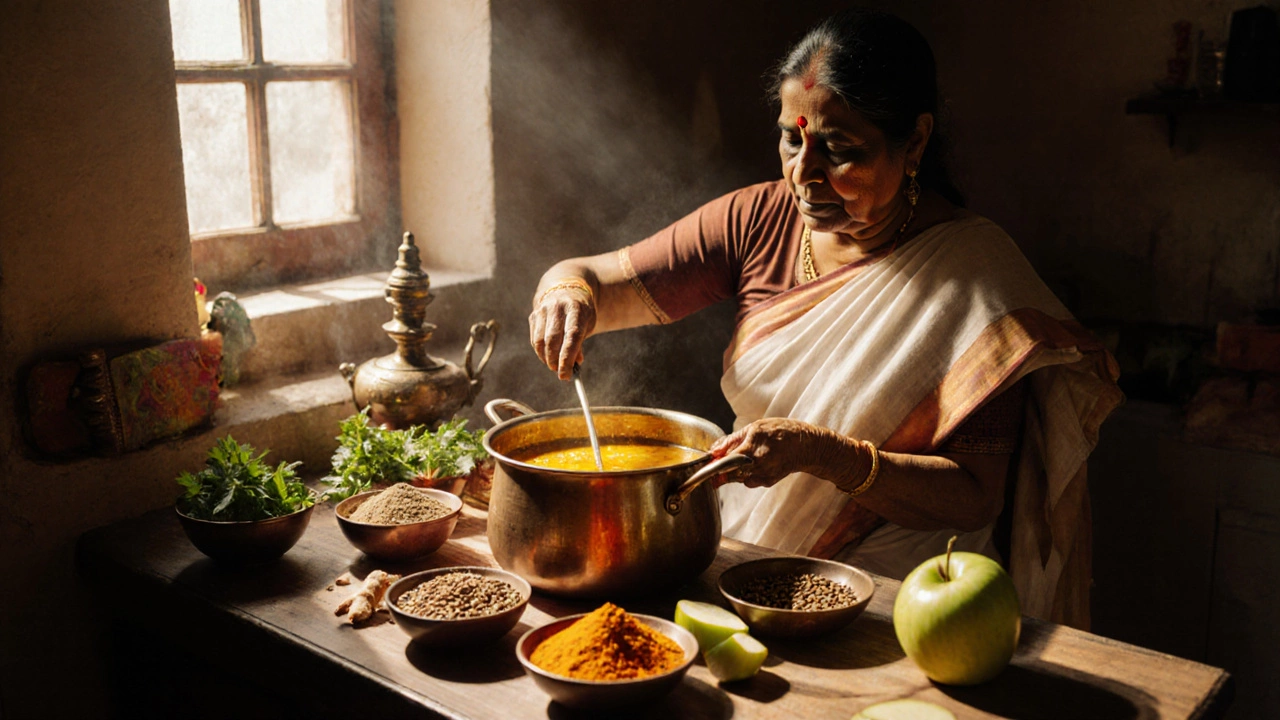Learn how to start an ayurvedic diet with simple, practical steps based on your body type. Focus on digestion, timing, and mindful eating-not restriction. Feel lighter, clearer, and more balanced in just days.
Read MoreAyurveda Basics: Simple Tips for a Pain‑Free Life
Ever wonder why thousands of people in India swear by Ayurveda? It’s not just ancient lore – it’s a set of everyday habits that can help you feel less pain and more energy. In this guide we’ll break down the core ideas, show you quick tricks you can start today, and point out common pitfalls to avoid.
What is Ayurveda and Why It Matters
Ayurveda translates to “science of life.” At its heart are three doshas – Vata, Pitta, and Kapha – that describe how your body processes food, movement, and stress. Each person has a unique mix, and when the doshas are balanced you tend to sleep better, digest food smoothly, and have fewer aches. If a dosha gets out of sync, you might notice dry skin, heat flashes, or sluggish joints.
Balancing doshas doesn’t require a complete lifestyle overhaul. Small tweaks like eating warm meals for Vata or cooling drinks for Pitta can make a noticeable difference. Think of it as a personal health thermostat; you just need to know which setting is too high or low.
Easy Ways to Use Ayurveda Every Day
1. Start your day with warm water. A cup of hot water right after waking helps awaken digestion and calm Vata. Add a slice of ginger for extra warmth if you tend toward dryness.
2. Choose breakfast based on your dosha. Vata benefits from cooked oats with ghee, Pitta feels good with fresh fruit and a little honey, while Kapha does best with light soups or sprouted quinoa.
3. Mind your spices. Turmeric, cumin, and coriander are gentle on all doshas and have anti‑inflammatory properties that can ease joint pain. A pinch in your morning tea or lunch curry goes a long way.
4. Take the “golden hour” seriously. The first hour after sunrise is calm and full of natural energy. Use it for gentle yoga, meditation, or a short walk. This routine supports dosha balance and reduces stress‑related pain.
5. Herbal allies. Ashwagandha, tulsi (holy basil), and triphala are widely used in Ayurveda for stress relief and immune support. Start with a small dose – a half‑teaspoon of powder in warm milk or a tea – and watch how your body reacts.
6. Stay hydrated with infused water. Add a few mint leaves or a slice of cucumber to your water bottle. It keeps digestion smooth and helps Kapha avoid excess mucus.
Remember, consistency beats intensity. Applying a couple of these habits for a week often reveals what works for your body. If you notice more energy, clearer skin, or less joint stiffness, you’re probably on the right track.
Ayurveda isn’t a one‑size‑fits‑all diet; it’s a toolbox. Pick the tools that feel right, test them, and adjust. Over time you’ll develop a personal routine that supports a pain‑free, vibrant life without the need for complex programs.
Ayurvedic cleanses promise detox and renewal, but they carry real risks like liver damage, dehydration, and dangerous herb interactions. Learn the side effects, who should avoid them, and safer alternatives.
Read MoreCan you safely combine Ayurvedic and homeopathic medicines? Learn the real risks, what science says, and how to make smart choices without risking your health.
Read MoreSwarna Bhasma is purified gold used in Ayurveda for brain health, immunity, and inflammation. Unlike decorative gold, it's a nano-sized ash prepared through a 21-day process. Learn how it works, why it's safe, and who should use it.
Read MoreDiscover the top 10 Ayurvedic medicines, their key benefits, typical doses, safety tips, and where to buy authentic, high‑quality herbal supplements.
Read MoreExplore how Ayurveda tackles weight loss, the role of doshas, diet, herbs, and lifestyle tweaks, plus evidence and practical tips for real results.
Read MoreA clear, practical guide to inflammatory foods in Ayurveda-what stokes heat, dryness, and heaviness, with dosha-specific lists, swaps, and UK-friendly examples.
Read MoreCurious about vata people? Discover vata personality traits, daily habits, challenges, and Ayurvedic lifestyle tips. Learn what sets vata dosha apart.
Read MoreExplore when to sleep according to Ayurveda, the science behind dosha cycles, and practical tips to reset your sleep schedule for natural energy and health.
Read MoreThinking about trying ashwagandha? This article tackles the real safety facts behind this popular herbal supplement. It breaks down what ashwagandha actually is, who should avoid it, how much is okay, and what side effects to watch out for. You'll get research-backed info, simple safety tips, and answers to common worries—so you can make a smart decision for your health.
Read MoreThis article breaks down what diseases Ayurveda claims to cure and where its strengths lie. You’ll get honest insight into which conditions people turn to Ayurveda for, how it stacks up against modern medicine, and some tips if you’re thinking about giving it a try. I’ll talk about common misunderstandings and share specific, real-life examples from the Ayurvedic world—not just theory. If you’re curious about natural approaches to your health or know someone diving into herbal remedies, you’ll find practical info here.
Read MoreLooking for the best herbal company? Picking the right herbal supplement brand can feel overwhelming with so many choices out there. This article breaks down what separates good herbal companies from the rest, spotlights top brands, and shares real tips for spotting quality products. Get facts on certifications, sourcing, and what to watch out for if you're shopping for natural health support. You'll leave confident about which herbal companies deserve your trust (and money).
Read More















